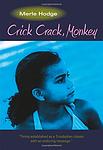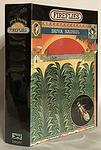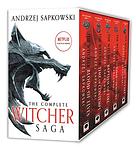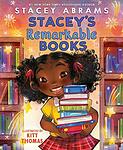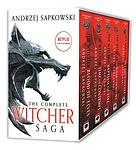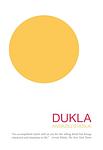The Greatest Polish, Trinidadian "Fiction" Books Since 1970
Click to learn how this list is calculated.
This list represents a comprehensive and trusted collection of the greatest books. Developed through a specialized algorithm, it brings together 300 'best of' book lists to form a definitive guide to the world's most acclaimed books. For those interested in how these books are chosen, additional details can be found on the rankings page.
Genres
Countries
Date Range
Reading Statistics
Click the button below to see how many of these books you've read!
Download
If you're interested in downloading this list as a CSV file for use in a spreadsheet application, you can easily do so by clicking the button below. Please note that to ensure a manageable file size and faster download, the CSV will include details for only the first 500 books.
Download-
1. A Bend in the River by V. S. Naipaul
"A Bend in the River" is a novel that follows an Indian man, Salim, who moves from the East Coast of Africa to the heart of the continent to open a store in a small, remote town at a bend in the river. The book explores the changes that occur in the town as it evolves from a sleepy outpost to a bustling city. It also delves into Salim's personal struggles and the challenges he faces in adapting to a rapidly changing society, all set against the backdrop of post-colonial Africa.
-
2. In a Free State by V. S. Naipaul
"In a Free State" is a collection of three short stories and a prologue and epilogue, portraying the realities of post-colonial life and the struggles of individuals caught between their native culture and the imposed Western values. The narratives span across India, Egypt, Washington D.C., and Africa, each exploring the themes of displacement, identity crisis, and cultural conflict. The book provides a profound examination of the human condition, the concept of freedom, and the complexities of power dynamics in a post-colonial world.
-
3. The Futurological Congress by Stanislaw Lem
In a dystopian future, the protagonist attends a scientific conference where he is exposed to a new hallucinogenic drug that transports him to a surreal and chaotic world. As he navigates through this bizarre reality, he becomes entangled in a conspiracy involving mind-altering technology, political manipulation, and the struggle for power. This satirical novel explores themes of reality, identity, and the dangers of unchecked technological advancements.
-
4. Drive Your Plow Over the Bones of the Dead by Olga Tokarczuk
This novel centers around an eccentric woman living in a remote Polish village, who becomes embroiled in a series of mysterious deaths occurring in her community. As she investigates, she is drawn into a deeper exploration of nature, astrology, and the human psyche, all while navigating the dismissive attitudes of the local law enforcement. The narrative is a blend of dark comedy, philosophical inquiry, and mystery, with a strong underlying commentary on animal rights and environmentalism.
-
5. The Beautiful Mrs. Seidenman by Andrzej Szczypiorski
Set in Nazi-occupied Warsaw, the novel tells the story of Mrs. Seidenman, a blonde, blue-eyed Jewish widow who is arrested by the Gestapo. The narrative revolves around the eclectic group of characters in her life, including a young man who is in love with her and a lawyer who is determined to save her. The book provides a vivid and poignant depiction of life under Nazi rule, exploring themes of survival, resistance, and the resilience of the human spirit.
-
6. Crick Crack, Monkey by Merle Hodge
This novel is a coming-of-age story set in Trinidad, exploring themes of colonialism, identity, and cultural conflict through the eyes of a young girl named Tee. As she navigates the complexities of her Afro-Trinidadian heritage and the imposed British colonial education system, Tee is torn between the warmth and vibrancy of her working-class upbringing with her aunt Tantie and the strict, anglicized environment of her middle-class aunt Beatrice. The narrative delves into the psychological impact of cultural dislocation and the struggle to find a sense of belonging in a society deeply fractured by class and race.
-
7. Guerrillas by V. S. Naipaul
"Guerrillas" is a novel set on a Caribbean island, exploring themes of race, politics, and power. The plot follows a group of characters, including a disillusioned Englishwoman, a struggling black activist, and a charismatic but dangerous mixed-race man who leads a band of guerilla fighters. As the tension and violence escalate, the novel delves into the complexities of post-colonial society and the struggle for identity and self-determination.
-
8. Milkman by Anna Burns
Set during The Troubles in Northern Ireland, this novel follows an unnamed 18-year-old protagonist who is pursued by a powerful, older man known only as the Milkman. Despite her attempts to avoid him and maintain a low profile in her community, rumors spread about their supposed affair, leading to increased scrutiny and isolation. The book explores the protagonist's struggle to maintain her individuality amidst political and social turmoil, while also dealing with the pervasive threat of violence and the power of gossip in a close-knit community.
-
9. Fireflies by Shiva Naipaul
This novel explores the complexities of post-colonial Trinidad through the lens of the protagonist's tumultuous family life and his arranged marriage. Set against a backdrop of societal change and personal disillusionment, the narrative delves into themes of identity, tradition, and the search for meaning in a rapidly transforming world. The protagonist's journey is marked by his struggle to reconcile his ambitions and desires with the expectations placed upon him by his family and community, ultimately presenting a poignant critique of the societal norms and cultural heritage that both bind and divide the characters. Through vivid storytelling and rich character development, the book offers a nuanced examination of the human condition within a specific cultural context.
-
10. The Complete Fiction Of Bruno Schulz: The Street Of Crocodiles, Sanatorium Under The Sign Of The Hourglass by Bruno Schulz
"The Complete Fiction of Bruno Schulz: The Street of Crocodiles, Sanatorium Under the Sign of the Hourglass" is a collection of two surreal and imaginative novellas by Bruno Schulz. In "The Street of Crocodiles," the narrator explores his childhood memories in a bustling town filled with eccentric characters and enchanting events. In "Sanatorium Under the Sign of the Hourglass," the protagonist finds himself in a peculiar sanatorium where time seems to stand still, leading to a series of dreamlike encounters and introspective musings. Schulz's unique writing style and vivid descriptions create a captivating reading experience that blurs the line between reality and fantasy.
-
11. A Crown of Feathers and Other Stories by Isaac Bashevis Singer
"A Crown of Feathers and Other Stories" is a collection of short stories that delve into the human condition, often through the lens of Jewish culture and history. The tales are filled with elements of fantasy and folklore, exploring themes such as morality, love, loss, and the struggle between good and evil. The characters grapple with ethical dilemmas, personal identities, and the complexities of relationships, while the narrative style often combines realism with the supernatural, creating a unique blend of the mundane and the mystical.
-
12. Collected Stories by Isaac Bashevis Singer
The anthology is a compilation of short stories that delve into the complexities of human nature, morality, and faith, often through the lens of Jewish life in Eastern Europe and the immigrant experience in America. The tales, rich with folklore, mysticism, and philosophical introspection, explore themes of love, temptation, and the eternal struggle between good and evil. The author's masterful storytelling weaves together the mundane with the supernatural, creating a tapestry of narratives that reflect the author's own Yiddish heritage and his keen observations of the human condition.
-
13. Flights by Olga Tokarczuk
"Flights" is a fragmented and philosophical novel that explores the theme of travel and movement. Through a series of interconnected stories and reflections, the book delves into the nature of human existence, the complexities of modern life, and the desire for freedom and escape. With its poetic language and unconventional structure, "Flights" invites readers to contemplate the transient nature of time, the significance of journeys, and the search for meaning in a world constantly in motion.
-
14. The Wine of Astonishment by Earl Lovelace
"The Wine of Astonishment" is a gripping narrative that explores the struggle of a small, rural community in Trinidad during the early 20th century, as they grapple with the effects of colonialism, World War II, and the prohibition of their spiritual practice, the Shouter Baptist faith. The story is told through the eyes of Eva, a strong-willed matriarch, and her husband, Bee, the spiritual leader of the community. The novel examines themes of resilience, faith, and the fight for cultural and religious freedom.
-
15. Blood Of Elves by Andrzej Sapkowski
This novel is the first in a series that delves into a richly imagined fantasy world, where the fate of the realms hangs in the balance. It follows the story of a young girl who is destined for great power and the group of protectors, including a famed witcher, who must safeguard her from numerous forces seeking to control or destroy her. As political turmoil, ancient magic, and personal vendettas intertwine, the characters are drawn into a complex web of alliances and conflicts. The narrative explores themes of destiny, the nature of good and evil, and the impact of past choices on the present, all set against a backdrop of intricate world-building and vividly described battles.
-
16. The Jumbies by Tracey Baptiste
"The Jumbies" is a captivating and enchanting tale that follows the adventures of Corinne La Mer, a brave and curious young girl living on the island of Trinidad. When a mysterious and powerful jumbie threatens her village, Corinne must use her wit and courage to protect her family and friends. With its rich Caribbean folklore and vivid descriptions, this book takes readers on a thrilling journey filled with magic, friendship, and the triumph of good over evil.
-
17. Golden Child by Claire Adam
Set in rural Trinidad, the book tells the story of a family with twin boys, Peter and Paul. Peter is academically gifted, while Paul is considered to be slower due to a complication at birth. When Paul goes missing, their father is faced with a terrible choice that highlights the stark contrasts between his sons. The novel explores themes of family, sacrifice, and the lengths a parent will go to protect their child.
-
18. The Witcher by Andrzej Sapkowski
This fantasy series introduces readers to a world filled with magic, monstrous creatures, and political intrigue, centered around the life of Geralt of Rivia, a Witcher. Witchers are humans who have been genetically modified and trained from a young age to hunt and kill monsters. Geralt, with his exceptional sword skills, navigates through the morally ambiguous landscape, often finding that humans can be more wicked than the beasts he hunts. Along his journey, he is entangled with powerful sorceresses, kings, and creatures of dark lore, all while grappling with his destiny and the concept of what it means to be human in a world where the line between good and evil is blurred.
-
19. Dukla by Andrzej Stasiuk
This book offers a series of evocative essays that delve into the essence of Dukla, a small town in Poland, through the lens of memory and sensory experiences. The author masterfully blends observations of the mundane with philosophical musings, painting a vivid picture of the landscape, its people, and the passage of time. Through his exploration of various locales, from bustling markets to serene natural settings, he invites readers to reflect on the nature of existence, the beauty of the overlooked, and the profound connection between place and identity. The narrative is a poignant reminder of how deeply our surroundings can influence our perceptions of the world and ourselves.
-
20. The Chip Chip Gatherers by Shiva Naipaul
"The Chip Chip Gatherers" is a novel that explores the complex dynamics of a multi-generational Indo-Trinidadian family, the Khojas, living in Trinidad. The story revolves around the ambitions and struggles of the family patriarch, Egbert, as he attempts to rise above his impoverished beginnings and establish a successful life for his family. However, his efforts are constantly undermined by family squabbles, cultural tensions, and the harsh realities of post-colonial Trinidad. The novel provides a stark portrayal of the struggles faced by immigrants and the destructive power of envy and resentment within a family.
Reading Statistics
Click the button below to see how many of these books you've read!
Download
If you're interested in downloading this list as a CSV file for use in a spreadsheet application, you can easily do so by clicking the button below. Please note that to ensure a manageable file size and faster download, the CSV will include details for only the first 500 books.
Download




